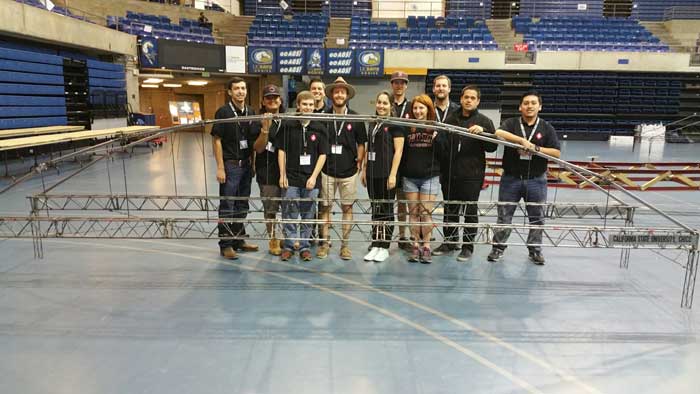Published 2011-12-06T18:42:00Z”/>
Jake Buffenbarger
The very integrity of the Internet is being threatened, but not by a terrorist cell hiding in a cave or a group of hackers in a man-cave.
Congress introduced two bills that endanger the Internet we know and love.
The first, the Stop Online Piracy Act, was introduced to the House of Representatives on Oct. 26.
The second, the Preventing Real Online Threats to Economic Creativity and Theft of Intellectual Property Act, shortened to Protect IP, was introduced to the Senate May 12.
Both bills aim to prevent Americans from accessing foreign websites that provide links to copyrighted material. Rights holders would file a complaint to the Justice Department.
The department would demand that financial transaction providers, Internet advertising services, Internet service providers and search engines stop financial transactions with the rogue site and stop linking to it.
Opponents of the bills include many social media sites, while proponents include companies in cable, movie and music industries.
Protecting the rights of intellectual property holders is a noble idea, but these bills use overly broad language that leaves details in question.
The Stop Online Piracy Act requires court approval for action against search engines while Protect IP does not, so, for example, Google could be sued for providing links to websites that have copyrighted materials.
Companies like YouTube would be in danger because the passing of either of these laws would make the streaming of copyrighted material a felony. It would force YouTube to pre-emptively fight copyright infringement instead of the current method, which relies on the website owner to take down copyrighted material when notified.
This would force Internet companies to spend a large amount of money hiring people to look for infringement. This burden foisted upon American businesses could motivate them to relocate to other less oppressive countries.
Opponents also argue that these bills would prevent small upstart companies from emerging, thus reducing economic growth.
Another problem for these bills is that the usually Internet savvy pirates would be able to bypass the lack of links and blocked domain names by entering the IP address of the website.
The government has to protect American copyrighted material, but this legislation is not the solution. If these vague bills pass it will result in slightly less copyrighted materials, but also a torrent of lawsuits and confusion. It would reduce growth in the Internet industry, a rapidly growing market that is the future of commerce.
<hr />
<strong>Jake Buffenbarger can be reached at</strong>
<em>[email protected]</em>













